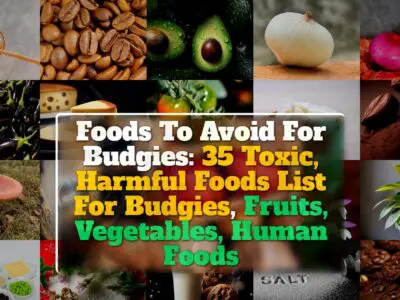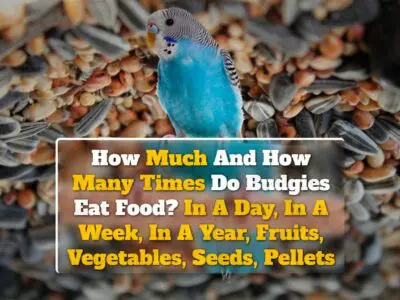A budgie’s diet should primarily (around 60%) be comprised of high-quality pellets specially designed for them.
Around 20-30% should come from fresh fruits and vegetables, like apples, carrots, and dark leafy greens.
Seeds, though traditionally a staple, should only constitute about 10-20% of their diet.
Also, calcium sources such as cuttlebone or mineral blocks are necessary. Ensure harmful substances like chocolate, avocado, or foods high in sugar or salt are avoided.
Are you searching for a comprehensive guide on budgie diet? As a bird enthusiast and former budgie owner, I know how challenging it can be to create the perfect diet for these feathered companions.
So, based on my experiences and insights, I’ve crafted this guide, detailing everything from seeds, grains, and pellets to fruits, vegetables, and even insects.
Learn to sidestep toxic foods and better understand your budgie’s nutritional needs.
Dive in to discover a complete guide to your budgie’s diet.
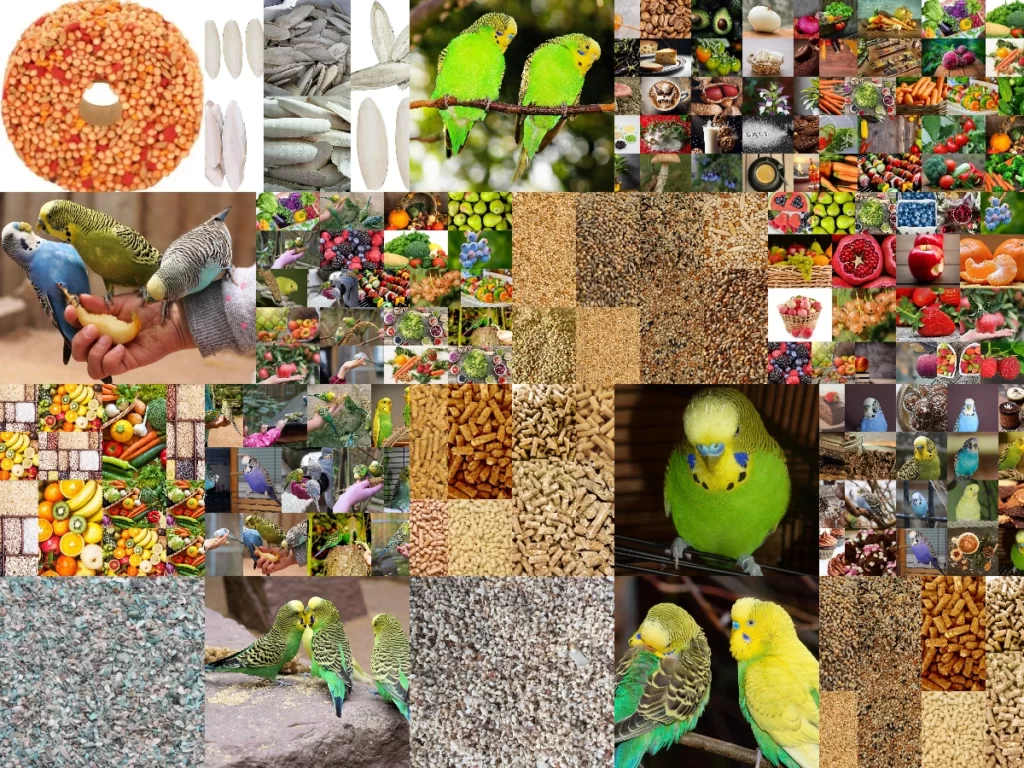
The Importance of Diet to Budgies’ Health
The diet of a budgie, like any creature, is intrinsically linked to its overall health and wellbeing.
A balanced diet is crucial for budgies, providing them with essential nutrients to maintain their health and vibrancy.
From supporting feather growth and color to bolstering their immune system, what you feed your budgie has wide-ranging effects.
Here are some key points to remember:
- A diet rich in variety gives budgies exposure to a wide array of nutrients, helping to prevent deficiencies and promoting optimal health.
- Nutrient-dense foods, including seeds, grains, fruits, vegetables, and specially formulated pellets, contribute to a budgie’s physical health and longevity.
- The right balance of nutrients helps to regulate a budgie’s metabolism, contributing to healthy weight management and energy levels.
- Hydration is crucial. Budgies need access to fresh water daily, which aids digestion and nutrient absorption.
Understanding What Budgies Eat
Budgies, or budgerigars, have a diverse palate that extends beyond merely seeds and grains.
To ensure a balanced diet and good health, your budgie’s diet should include a variety of foods like fruits, vegetables, and specially formulated pellets.
A well-fed budgie is a happy, healthy budgie!
Everyday Foods for Budgies
Budgies should have a diet composed of different types of foods, each contributing to their overall nutrition.
Here’s a detailed breakdown of what these feathered friends love to munch on:
Seeds and Grains
Seeds and grains make up a significant part of a budgie’s diet, providing essential fats, proteins, and other nutrients.
These foods include:
- Millet: An absolute favorite of many budgies, millet is a small, round grain that’s packed with nutrients.
- Canary seed: High in protein, this seed is an excellent addition to a budgie’s diet.
- Oats: A good source of fiber, oats can be given in moderation.
Keep in mind, seeds and grains alone are not enough for a balanced diet, as they can be high in fats and lack certain nutrients.
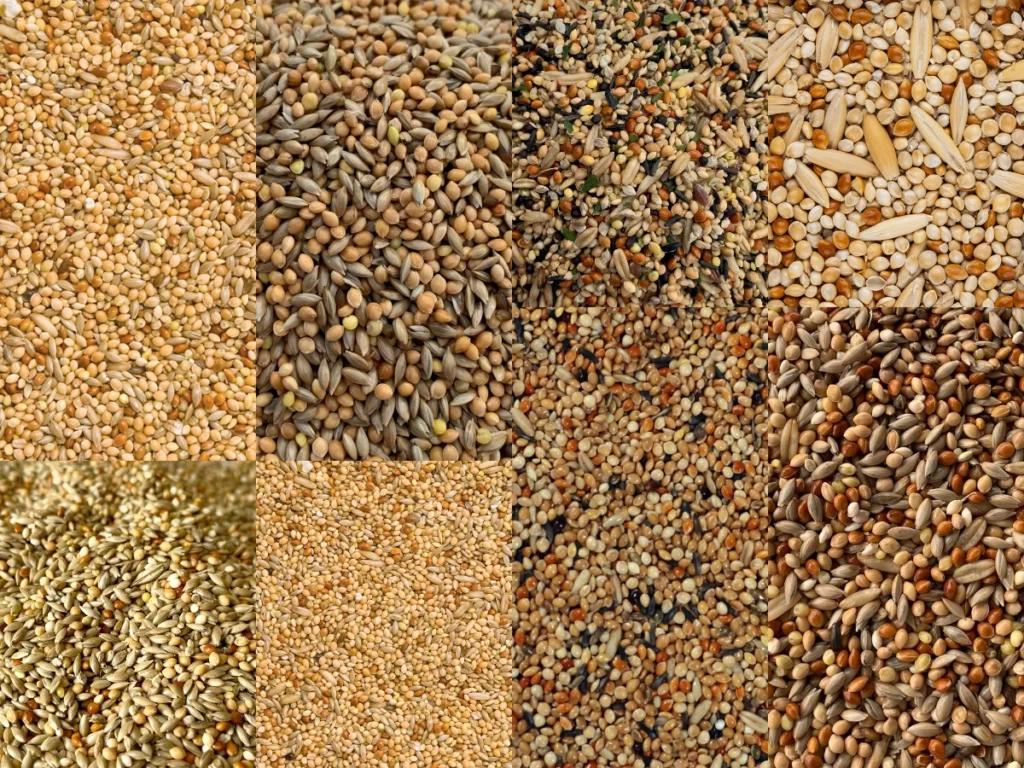
Fruits
Fruits are a healthy treat that can provide budgies with essential vitamins and antioxidants.
Some safe options include:
- Apples: These can be a tasty treat, but remember to remove the seeds, which can be harmful.
- Bananas: High in potassium, bananas are a beneficial supplement to a budgie’s diet.
- Berries: Strawberries, blueberries, and raspberries are full of antioxidants and vitamins.
Remember to wash all fruits thoroughly to remove any pesticides and cut them into small, manageable pieces.
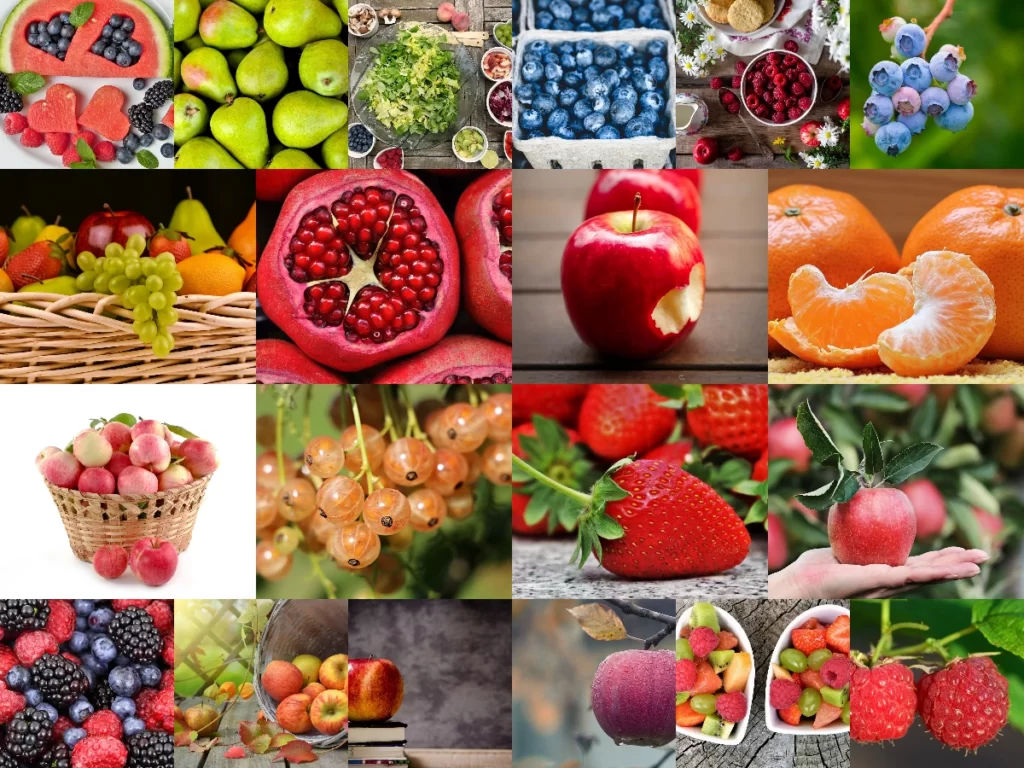
Vegetables
Vegetables are an essential part of a budgie’s diet, providing necessary vitamins, minerals, and fiber.
Safe options include:
- Leafy Greens: Spinach, kale, and romaine lettuce are full of nutrients.
- Carrots: These are high in vitamin A, beneficial for a budgie’s skin and feathers.
- Bell peppers: Any color of bell pepper is packed with vitamin C.
Like with fruits, all vegetables should be thoroughly washed and cut into small pieces before feeding.
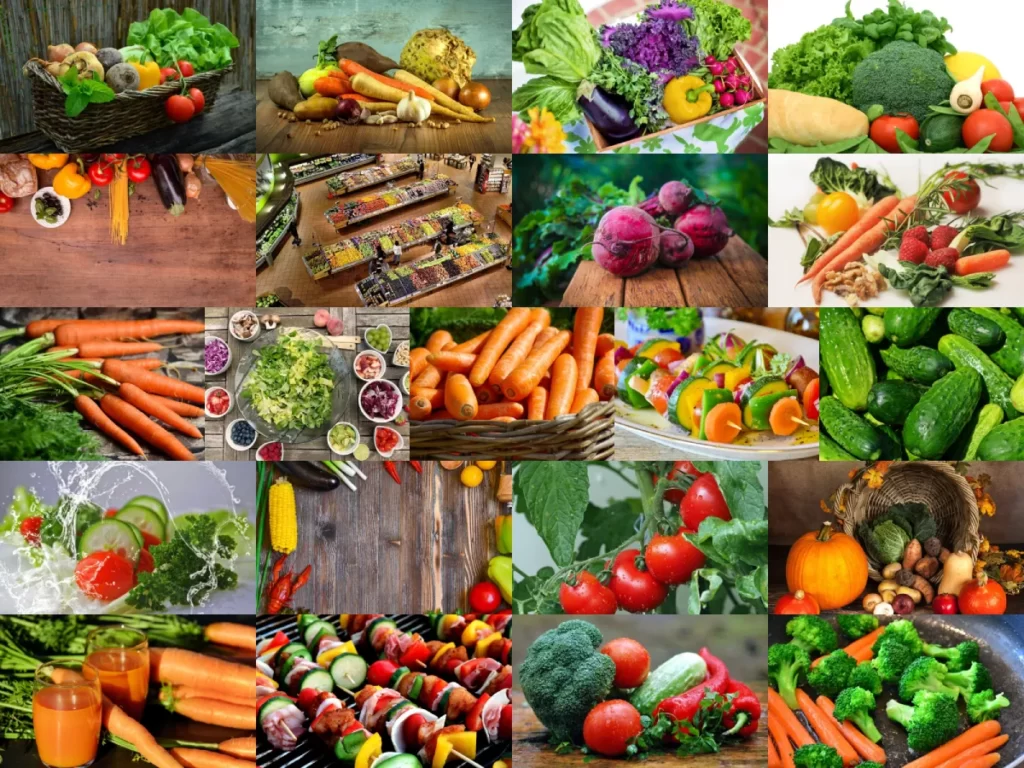
Pellets
Formulated bird pellets are often a more balanced food source than seeds, containing a range of necessary nutrients.
They should make up a significant portion of a budgie’s diet. Remember to transition your budgie slowly onto a pellet diet, starting by mixing them with their regular seed mix.
In summary, a budgie’s diet should be diverse and balanced, featuring seeds, grains, fruits, vegetables, and pellets.
Regular feeding of fresh fruits and vegetables contributes to the overall health and happiness of these delightful pets.
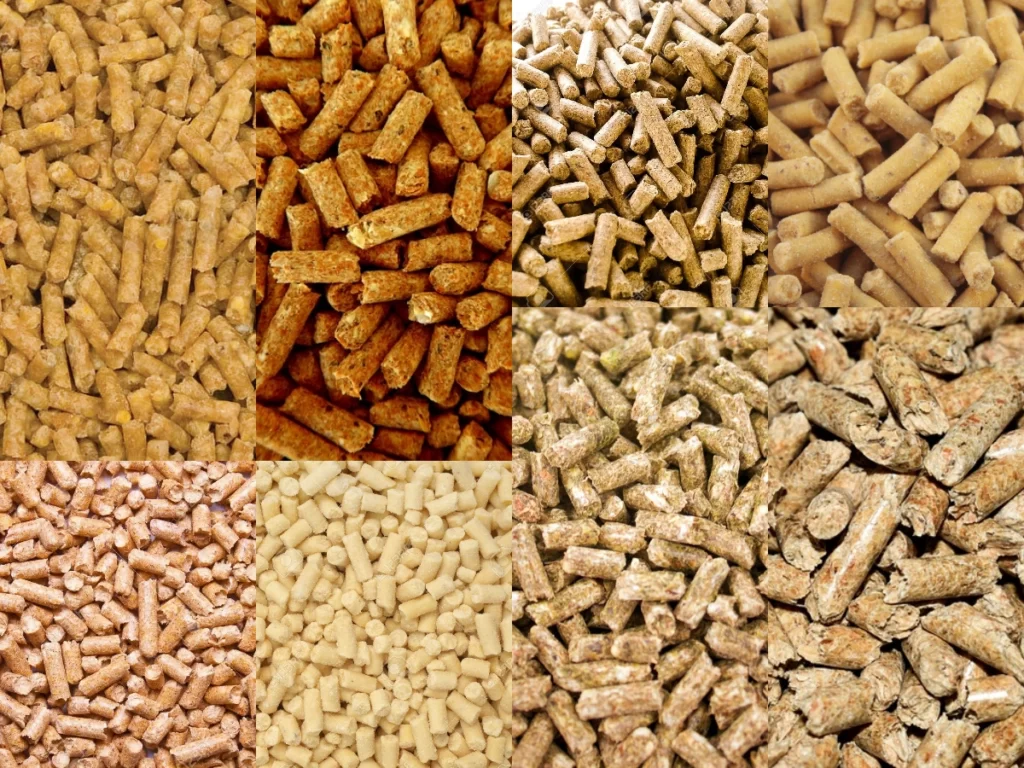
Budgies’ Favorite Foods
Budgies are often keen to try a variety of foods. However, individual tastes may vary, and it’s crucial to monitor your budgie’s eating habits to understand their preferences.
Some of the popular choices among budgies often include millet, apples, and broccoli.
Foods to Avoid for Budgies
While a variety of foods can be beneficial, there are also some foods that are unsafe for budgies and should be strictly avoided.
Toxic Foods
Several foods are toxic to budgies and can lead to serious health issues, even in small amounts.
These include:
- Avocado
- Chocolate
- Alcohol
- Coffee and caffeine
Fruits Budgies Cannot Eat
While most fruits are safe for budgies, there are exceptions. For instance, the seeds of certain fruits contain compounds that are toxic to budgies.
These include:
- Apple seeds
- Cherry pits
- Peach stones
- Pear pips
Monitor their eating habits, keep toxic foods out of reach.
Dietary Supplements for Budgies
Just like humans, budgies – also known as parakeets – require a balanced diet to maintain their health.
While they primarily eat seeds and fresh fruits and vegetables, these foods might not provide all the necessary nutrients in adequate amounts.
This is where dietary supplements come in. They are essential for a budgie’s optimal growth, longevity, and overall health.
Importance of Dietary Supplements
Budgies are lively, vibrant birds with high energy requirements. Their bodies function best when fueled with a mix of various nutrients, and dietary supplements serve this purpose.
They:
- Prevent Nutrient Deficiencies: Even a balanced diet may not cover all the nutritional bases. Supplements help prevent deficiencies, especially of vitamins and minerals that are crucial for a budgie’s wellbeing.
- Improve Immunity: Certain dietary supplements boost the bird’s immune system, helping them fend off illnesses.
- Enhance Feather Health: Supplements play a vital role in maintaining healthy, vibrant feathers.
Types of Budgie Dietary Supplements
When it comes to supplements, a myriad of options are available. However, not all supplements serve the same purpose.
Some common ones include:
Mineral Blocks
Mineral blocks are integral to a budgie’s diet, offering necessary minerals like calcium and other trace elements.
They also provide an excellent beak-trimming surface.
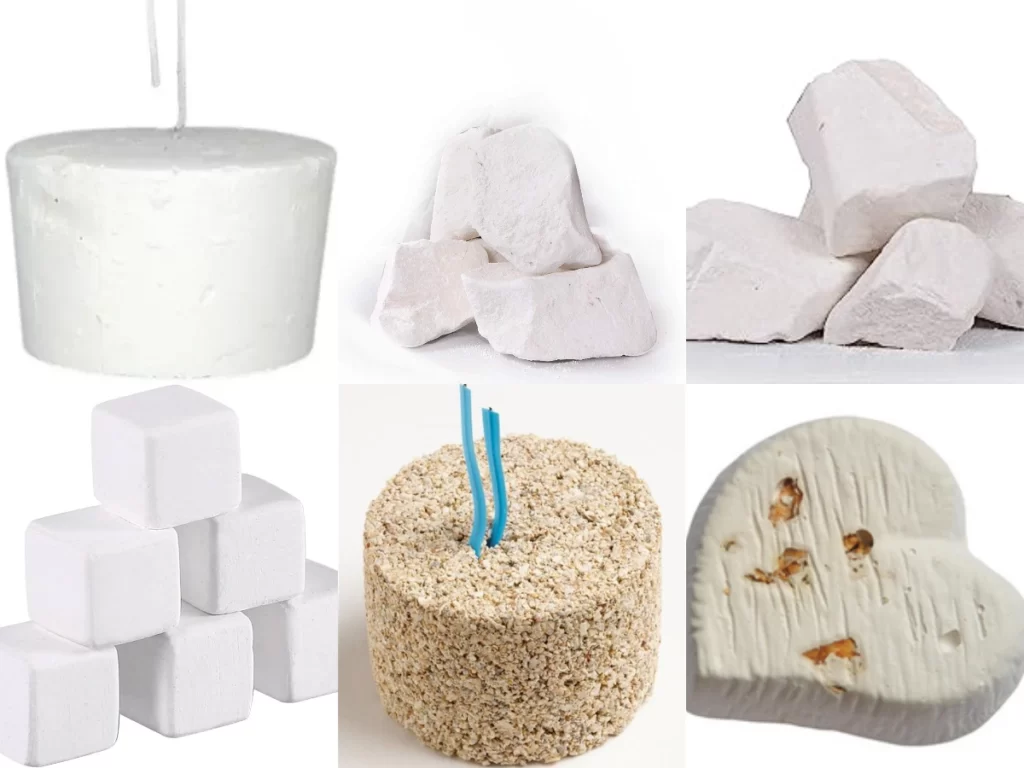
Cuttlebones
Cuttlebones are not just a beak conditioner but also a fantastic source of calcium and other trace minerals.
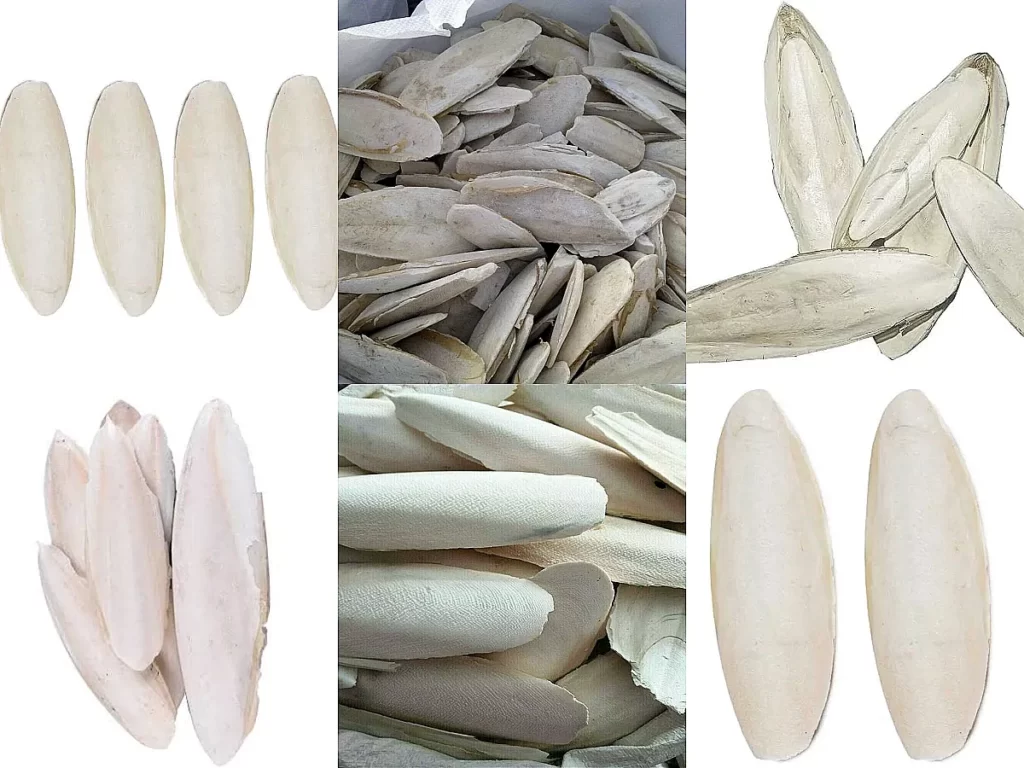
Vitamin Supplements
These supplements ensure your budgie gets an adequate supply of necessary vitamins, particularly when their diet lacks variety.
Probiotics
Probiotics help maintain a healthy gut flora, thereby aiding digestion and promoting overall health.
Grit
While some believe grit is necessary for digestion in birds, others argue that budgies, as hookbills, do not require it.
It’s best to consult a vet before including grit in your budgie’s diet.
Iodine Blocks
An excellent source of iodine, these blocks help prevent iodine deficiency, which can lead to thyroid problems.
Charcoal
Charcoal aids in digestion and detoxification, though it should only be provided in moderation.
Best Practices for Supplement Usage
While supplements are beneficial, they must be used wisely. Here are some tips:
- Variety is Vital: Rotate between different types of supplements to ensure your budgie gets a wide range of nutrients.
- Moderation is Key: Over-supplementing can be harmful. It’s important not to overdo it.
- Consult a Vet: It’s best to consult a veterinarian before starting any new supplement regimen for your budgie.
How Much and How Often to Feed Budgies
Budgies, like all pets, require careful attention to their dietary needs to remain healthy and active.
Understanding how much and how often to feed them is crucial for their wellbeing.
Their feeding schedule, however, will depend on their age, health status, and activity levels.
Budgie Feeding Frequency
In the wild, budgies tend to eat throughout the day, nibbling here and there.
This natural behavior can guide us to understand the frequency with which to feed them in captivity.
Here’s a simple feeding routine you could follow:
- Morning: Fresh fruits and vegetables should be provided first thing in the morning. These items are usually consumed within a few hours.
- Midday: After a few hours, you can provide seeds or pellets.
- Evening: Remove any uneaten fruits, vegetables, and other perishable foods to prevent spoilage and potential health risks. Leave the seeds or pellets overnight as budgies might nibble a bit more before they sleep.
Budgies are sociable creatures who love company. Try to make their feeding times coincide with your meal times, as they often enjoy eating with their human family.
Portion Sizes for Budgies
Determining the correct portion size for your budgie is equally important. Overfeeding can lead to obesity and health problems.
Underfeeding, on the other hand, can lead to malnutrition.
A good rule of thumb is to provide about 1.5 to 2 teaspoons of seeds or pellets per budgie per day.
This can be supplemented with about 1 to 2 teaspoons of fresh fruits and vegetables.
Here’s a simple breakdown:
- Seeds/Pellets: 1.5 to 2 teaspoons per day
- Fruits and Vegetables: 1 to 2 teaspoons per day
Of course, these are general guidelines, and individual budgies may require more or less depending on their size, age, and activity levels.
Always monitor your budgie’s eating habits and adjust portion sizes as necessary.
A balanced diet served in the right portion sizes and frequency is key to your budgie’s health.
Feeding Budgies in Different Life Stages and Seasons
Budgies require different diets and feeding frequencies at different stages of their life and seasons of the year.
Understanding these needs is fundamental for their overall health and vitality. Here we’ll delve into the specific feeding requirements for budgies in various life stages, and how seasons may affect these needs.
Diet for Baby Budgies
Just as human babies have different dietary needs than adults, so do baby budgies, or “chicks.” In the wild, parent budgies pre-digest their food and feed it to their chicks.
In captivity, we need to mimic this diet closely to ensure the chicks grow up healthy and strong.
What Do Baby Budgies Eat?
Baby budgies primarily feed on a unique mixture often referred to as “budgie hand rearing formula,” which mimics the nutrition found in their parent’s pre-digested food.
This formula is usually a blend of various types of cereals like rice and corn, with added vitamins and minerals.
When preparing the formula, follow these guidelines:
- Temperature: The formula should be warmed to about 102°F (39°C) before feeding. Cold food can cause digestive issues, and too hot can burn the chick’s crop.
- Consistency: The formula should be smooth and runny for very young chicks, gradually becoming thicker as the chick grows older.
- Frequency: Feed the formula to the chicks every 3 to 4 hours.
Remember, hygiene is vital when preparing and feeding the formula to avoid infections.
Always clean feeding utensils thoroughly before and after each feeding.
How Often Do Baby Budgies Eat?
In the initial stages, baby budgies need to be fed every 2-3 hours.
As they grow, the frequency will reduce.
Here’s a basic guideline on feeding frequencies based on the chick’s age:
- 1-2 weeks old: Feed every 2-3 hours.
- 2-4 weeks old: Feed every 3-4 hours.
- 4-6 weeks old: Feed every 4-5 hours. At this stage, chicks will start exploring solid foods.
Be sure to consult with a vet or experienced bird breeder if you’re uncertain about feeding your baby budgies.
As the chicks start to explore and eat solid foods, gradually reduce the hand rearing formula and replace it with a balanced diet of seeds, pellets, fruits, and vegetables.
This transition should be fully complete by the time they’re 8 weeks old.
Diet During Breeding Season
The breeding season for budgies is a demanding time for both male and female birds, necessitating adjustments in their diet.
Protein and calcium become crucial for egg production and chick development, and budgies may need more energy-dense food.
A breeding budgie’s diet might include:
- Increased protein: More servings of eggs (hard-boiled and finely chopped), tofu, or low-fat cottage cheese.
- Calcium-rich foods: Such as broccoli, kale, or a calcium block added to the cage.
- High-quality seed mix: Supplying necessary fats and other nutrients.
- Fresh fruits and vegetables: Providing vital vitamins and antioxidants.
Ensure clean, fresh water is always available, especially in the breeding season, as dehydration can lead to serious health problems.
Diet During Molting Season
During molting season, when budgies renew their plumage, their diet should be adjusted to support feather growth.
Molting can be stressful for birds and requires a diet high in protein and amino acids.
The diet during this period should include:
- Protein sources: Like hard-boiled eggs, legumes, quinoa, and sprouted seeds.
- Vitamin-rich fruits and vegetables: Especially those high in Vitamin A, like sweet potatoes and carrots.
- Fresh water: Molting can cause dry skin, so fresh water for drinking and bathing is crucial.
Diet for Aging Budgies
As budgies age, their metabolic rate decreases, and they become less active.
It’s important to adjust their diet to prevent obesity and ensure they get all the nutrients they need.
A balanced diet for an aging budgie should include:
- Lower fat seeds: Opt for millets and canary seeds, as opposed to sunflower seeds and others high in fat.
- Fruits and vegetables: Aging budgies can suffer from decreased digestion. Fruits and vegetables can provide necessary fiber and hydration.
- Smaller, easier to consume food: As budgies age, they may struggle with larger seeds and hard foods. Opt for softer, smaller items.
Observe your budgie during these different life stages and seasons, and be ready to consult a vet if you notice changes in appetite, energy levels, or general health.
Special Diets for Budgies
In certain circumstances, budgies might need special diets beyond the normal balance of seeds, vegetables, and fruits.
These scenarios could include illness, recovery from surgery, or specific deficiencies.
Special diet considerations include:
- Prescription diets: Vet-prescribed foods are specially formulated for birds dealing with specific health problems.
- Vitamin and mineral supplements: These can be beneficial in case of certain deficiencies but should only be administered under vet guidance.
- Easily digestible foods: For budgies recovering from illness or surgery, softer foods like cooked quinoa or finely chopped hard-boiled egg can be beneficial.
Consult a veterinarian before making significant changes to a budgie’s diet, especially in the case of illness or health concerns.
Breeding Budgies’ Diet
Breeding budgies have specific nutritional needs to ensure healthy eggs and chicks.
Their diet requires a balance of energy, protein, calcium, and other nutrients.
Key points of a breeding budgie’s diet include:
- Protein increase: Serving more eggs, tofu, or low-fat cottage cheese.
- Calcium intake: Offering broccoli, kale, or a calcium block.
- Fresh fruits and vegetables: These provide essential vitamins and antioxidants.
Provide clean, fresh water at all times. Dehydration can cause severe health problems, particularly during the breeding season.
Competition Preparation Diet
In the lead up to a competition, Show Budgie owners may modify the diet to optimize the bird’s appearance and condition:
- Protein Boost: Providing a bit more protein can help improve the condition of feathers. This can be achieved by offering more egg food or sprouted seeds.
- Colour Enhancers: Some owners give their birds certain foods to enhance their plumage’s natural colours. For example, red fruits and veggies like carrot and red pepper can deepen yellow and orange hues due to their beta carotene content.
- Condition Foods: Many breeders use special ‘condition’ foods to ensure their birds look their best. These are often high in protein and other essential nutrients.
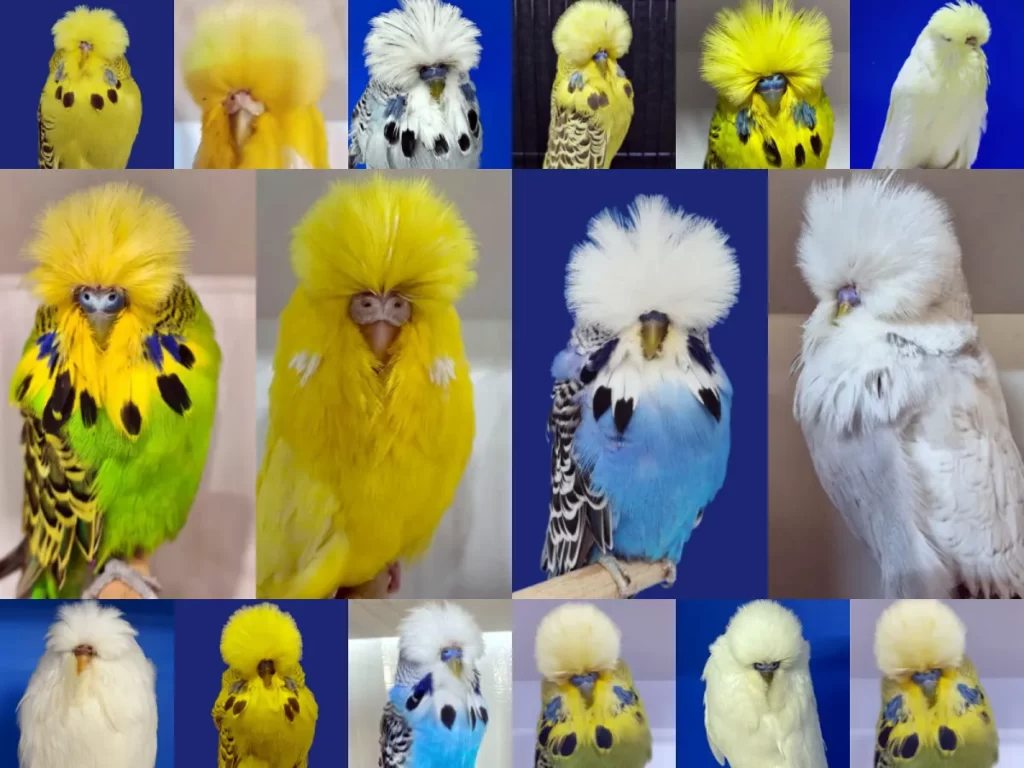
Overweight Budgies Diet and Exercise Regime
If a budgie is overweight, it may require a special diet and increased exercise to achieve a healthy weight and prevent related health problems.
Considerations for an overweight budgie’s diet and exercise regime might include:
- Low-fat diet: Opt for lower-fat seeds, increase servings of vegetables and fruits.
- Controlled portions: Overeating can lead to obesity. Make sure to provide measured amounts of food and limit treats.
- Increased exercise: Provide toys and encourage activities that make your budgie move around the cage more.
- Regular weight checks: Use a small bird scale to monitor weight. A sudden increase or decrease may indicate a health issue.
Budgies’ Diet in the Wild
Budgies are native to the arid regions of Australia. In their natural habitats, these birds have evolved to thrive on a diet that varies greatly from what is typically provided in captivity.
Understanding what budgies eat in the wild can help us ensure a balanced diet for pet budgies.
What Do Budgies Eat in the Wild?
Wild budgies have a grain-based diet, predominantly feeding on grass seeds. However, depending on the availability, they can also consume:
- Seeds from native shrubs and trees
- Leaves, particularly in times of drought when seeds may not be available
- Fruits and berries that provide an essential dose of vitamins and antioxidants
- Insects and larvae, offering necessary protein, especially during the breeding season
How Do Budgies Find Food in the Wild?
Budgies employ various strategies to find food in their natural habitat, all related to their adaptation to arid environments.
Some techniques include:
- Nomadic lifestyle: Budgies move around in flocks, sometimes in thousands, from one place to another in search of food and water sources.
- Seasonal adaptation: They follow the cycle of the seasons, migrating to areas where food is abundant.
- Ground foraging: Budgies are excellent at finding seeds on the ground, and this forms the major part of their diet.
- Tree climbing: They climb trees and shrubs in search of fruits, berries, and insects.
It’s crucial to recognize these natural dietary habits and food-seeking behaviors when caring for budgies in captivity.
By mimicking these dietary needs, we can ensure our budgies live a healthier, more enriched life.
Is Your Budgie Eating Right?
When it comes to the health and happiness of your pet budgie, diet is key.
Ensuring your bird is eating right involves a careful balance of diverse nutrients.
Let’s dive into what constitutes a proper budgie diet.
1. Balanced Diet: Budgies are granivores, meaning their diet is primarily based on grains and seeds.
However, they also need fruits, vegetables, and the occasional protein source. A balanced budgie diet should look like this:
- 70% Pellets: Specialized bird food that provides a balanced mix of nutrients.
- 20% Fresh Fruits and Vegetables: Variety is important, but remember to avoid avocado and chocolate as they are toxic to birds.
- 10% Seeds: Despite popular belief, seeds should not constitute the majority of a budgie’s diet. They are high in fat and low in other essential nutrients.
2. Portion Control: Budgies are small birds, so they don’t need a lot of food.
Too much can lead to obesity. A typical budgie only needs between 1.5 to 2 teaspoons of food per day.
3. Water: Fresh, clean water should always be available to your budgie.
Change it daily to prevent bacterial growth.
| Food Type | Percentage |
|---|---|
| Pellets | 70% |
| Fresh Fruits and Vegetables | 20% |
| Seeds | 10% |
Recognizing a Healthy Budgie Diet
Recognizing if your budgie’s diet is healthy involves observing their behavior, their droppings, and their physical appearance.
1. Behavior: A healthy budgie will be active, alert, and will show interest in its food.
2. Droppings: Budgie droppings should be solid and not too watery or discolored.
Changes can indicate diet issues or illnesses.
3. Physical Appearance: Budgies should maintain a steady weight. Fluffed up feathers, a ruffled appearance, or weight loss can be signs of a poor diet or illness.
What to Do If Your Budgie Isn’t Eating Properly
If your budgie isn’t eating properly, it might be a sign of illness.
However, it could also mean they’re simply not interested in the food provided.
Try the following:
1. Variety: Introduce a variety of fruits, vegetables, and pellet types to find what they prefer.
2. Gradual Change: If you’re introducing a new food, mix it with their existing food and gradually increase the amount.
3. Consult a Vet: If your budgie continues to eat poorly, consult with a vet.
They can rule out medical issues and provide professional dietary advice.
FAQs About Budgie Diet
Are Budgies Vegetarian?
While budgies primarily consume seeds, fruits, and vegetables, they are not strictly vegetarian.
In the wild, they sometimes eat insects for protein. However, in captivity, a balanced diet can be achieved with high-quality pellets, fresh produce, and a limited amount of seeds.
Can Budgies Eat Herbs?
Yes, budgies can eat certain herbs like basil, cilantro, and dill. These provide a rich source of vitamins and can be an exciting addition to their diet.
Can Budgies Eat Insects?
Budgies can eat insects and in the wild, they often do. In captivity, they can get sufficient protein from their pellet food.
If you want to supplement, mealworms or other pet-safe insects can be given sparingly.
Can Budgies Eat Nuts?
Nuts can be given to budgies but in moderation due to their high fat content.
Ensure they are unsalted and raw. Almonds and walnuts are good choices.
What Role Do Seeds and Grains Play in a Budgie’s Diet?
Seeds and grains are fundamental to a budgie’s diet, providing necessary fats, proteins, and carbohydrates.
However, they should not be the sole food source, as budgies also require fruits, vegetables, and pellets for a balanced diet.
Why Should Budgies Consume Pellets?
Pellets are a crucial part of a captive budgie’s diet as they’re nutritionally balanced, providing a range of vitamins and minerals.
Pellets should make up about 50% of a budgie’s food intake for optimal health.
How Often Should Budgies Be Fed Fruits and Vegetables?
Fresh fruits and vegetables should be a daily part of a budgie’s diet. They offer essential vitamins, minerals, and fiber, contributing to the overall health and vitality of the bird.
How Vital is the Inclusion of Fruits and Vegetables in a Budgie’s Diet?
Budgies should consume fresh fruits and vegetables daily as they are rich in essential vitamins, minerals, and fiber.
These nutrients are crucial for maintaining the overall health and vitality of the budgie.
Can Budgies Eat Insects?
Yes, budgies can eat insects. Although not a major part of their diet, insects can provide a rich protein source.
Offering insects like mealworms occasionally can contribute to a varied and balanced diet.
Is Feeding Insects to Budgies Beneficial?
While not a staple, insects can provide an excellent protein source for budgies.
Offering insects such as mealworms occasionally can supplement their diet and contribute to their overall nutritional balance.
What are Some Toxic Foods to Avoid in a Budgie’s Diet?
Certain foods can be harmful to budgies. Avocado, chocolate, alcohol, caffeine, fruit seeds (like apple seeds), and high-fat, high-salt, or high-sugar foods should be strictly avoided to maintain the health and longevity of the bird.
How Significant are Seeds in the Overall Nutrition of Budgies?
Seeds form an integral part of a budgie’s diet, providing essential fats, proteins, and carbohydrates.
However, a diet exclusively consisting of seeds can lead to nutritional imbalances, highlighting the need for variety.
